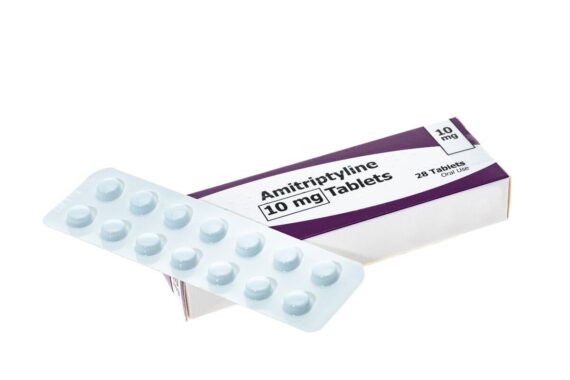Prescribe amitriptyline for IBS say researchers after trial shows benefit

GPs should prescribe amitriptyline to help patients with irritable bowel syndrome (IBS), say UK researchers who found it improves symptoms.
A trial in primary care found patients taking amitriptyline were almost twice as likely to report an overall improvement in symptoms as those taking a placebo.
Participants taking amitriptyline also reported a bigger improvement in their symptom scores after six months.
The large randomised study of more than 460 patients from 55 general practices found a low dose of the drug was also safe and well-tolerated by patients.
In the trial published in The Lancet, GPs prescribed the drug and patients managed their own dose based on the severity of their symptoms, using guidance provided as part of the treatment.
They had a document guiding them on increasing or decreasing the number of tablets based on their IBS symptoms and any side effects experienced.
The design of the study means the treatment is likely to be applicable to many people with the condition, the researchers from the Universities of Southampton and Leeds concluded.
It follows previous research showing a possible benefit for low-dose tricyclic antidepressants for in hospital clinics but this is the first large RCT looking at its use in primary care.
Close monitoring of participants’ anxiety or depression scores showed no effect, suggesting that the beneficial effects of the medication were via the gut.
Co-chief Investigator Professor Alexander Ford from the School of Medicine at the University of Leeds said: ‘This new rigorously conducted research indicates that general practitioners should support patients in primary care to try low-dose amitriptyline if their IBS symptoms haven’t improved with recommended first-line treatments.’
Professor Hazel Everitt, professor of primary care research at the University of Southampton, who also co-led the study said before now GPs had not often prescribed amitriptyline for IBS as the research evidence was uncertain.
‘GPs already prescribe low-dose amitriptyline for other conditions, such as chronic pain and poor sleep, and when we interviewed GPs as part of this research, they were willing to prescribe it for IBS if the research evidence supported this.
‘Participants were also keen to have another option to try to help their IBS symptoms and most were happy to self-adjust their dose depending on symptoms and side effects.’
Researchers monitored participants’ anxiety or depression scores and found that they were not altered – suggesting that the beneficial effects of the medication were via the gut, not because of any effect as an antidepressant.
Professor Matthew Ridd, GP and Professor of Primary Health Care at the University of Bristol, said: ‘Pragmatic trials like this are always challenging to do in primary care and the team worked hard to overcome the additional challenges of the Covid-19 pandemic.
‘It’s fantastic that we’ve found that amitriptyline is an effective and safe option for patients with IBS to try.’
Pulse July survey
Take our July 2025 survey to potentially win £1.000 worth of tokens

Visit Pulse Reference for details on 140 symptoms, including easily searchable symptoms and categories, offering you a free platform to check symptoms and receive potential diagnoses during consultations.
Related Articles
READERS' COMMENTS [3]
Please note, only GPs are permitted to add comments to articles












What took so long?———this was known, to me at least, as far back as 1976
John, maybe you could write an article about your experience of treating such patients? Dosages used? With or without low Fodmaps? With or without SSRIs etc? In patients with loose type or constipation type IBS -etc etc.
I remember a neurology consultant once saying ‘ everyone has a 10mg deficiency of amitriptylline’ … if definitely can work wonders with some patients with IBS, neuropathic pains and a few ( but probably not majority) who have fibromyalgia